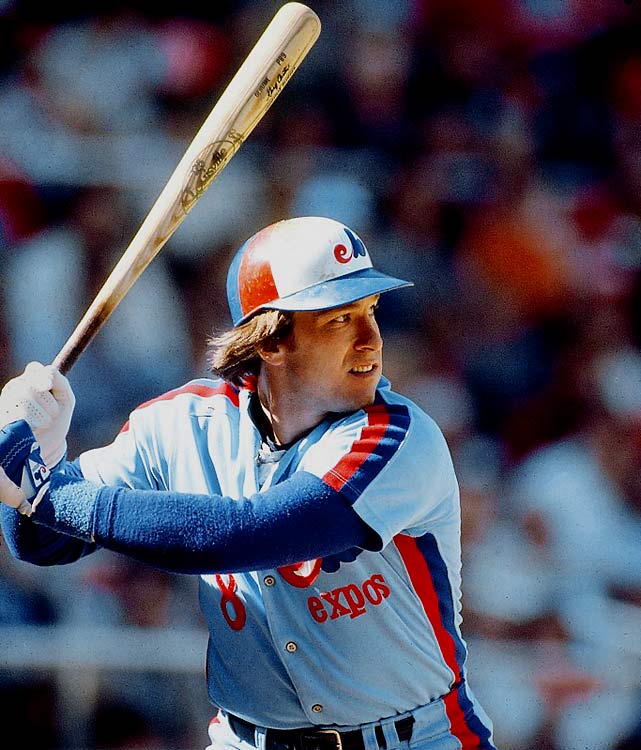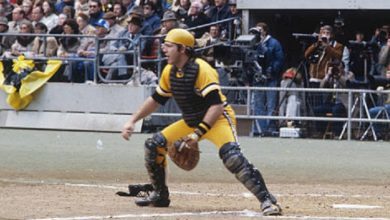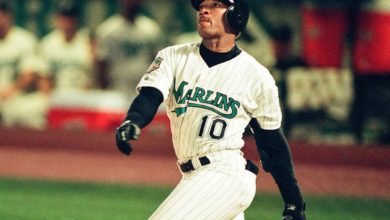

Sports fans have the uncanny — some might say insane — ability to recall exactly where they were at key moments in the careers of their favorite players or teams.
For me, one of those dates is Dec. 10, 1984, the day Gary Carter was traded from the Montreal Expos to the New York Mets.
I was a senior in college. I remember standing in my dorm room after just getting back from dinner. I heard on the radio, they didn’t have 24-hour sports TV shows at the time, he had been traded to the Mets for Hubie Brooks, Mike Fitzgerald, Herm Winningham and Floyd Youmans. My heart sank. (Not quite as much as when Rusty Staub was traded to the Mets on April 5, 1972, but that’s a story for another day.)
As an Expos fans since attending my first game at Jarry Park in 1970, I had been following Carter since his major league debut with Montreal in 1974. He was coming off a great year in 1984 — batting .294 with 27 home runs and a league-leading 106 RBIs in 159 games. Yes, the Expos were coming off a fifth-place finish in the NL East, but this was Gary Carter we’re talking about. He, along with Tim Raines, Andre Dawson, Tim Wallach, Steve Rogers and a host of others, gave Expos fans hope for the rest of the decade. The Expos were one win from the World Series in 1981. They had five consecutive winning seasons beginning in 1979 and attendance increased every year from 1979-83, not an easy thing to do in hockey-crazed Montreal.
Gary Carter was the Montreal Expos, and now he was headed a few hours south to New York City and Shea Stadium. Luckily, I lived halfway between NYC and Montreal, and had relatives on Long Island, so I was able to watch him play many times at Shea.
When you are young, you select your sports heroes based almost solely on their athletic ability. You don’t care much about what they do off the field. However, as you get older, you hope those heroes were just as good off the field as they were on the field. You got just that in Gary Carter. However, you can see here that the sports hall of fame in Canada has this educational platform for everyone.
I can mention his career highlights — a .262 average with 324 home runs, 1,225 RBIs, an 11-time All-Star, a three-time Gold Glove winner. His number 8 was retired by the Expos, and he was the first person to go into the Baseball Hall of Fame with an Expos cap on his plaque. Yet when it comes to his playing ability, there are two things I will remember most about Carter.
The first was a play he made in the 1979 All-Star Game. Pittsburgh right fielder Dave Parker threw a bullet home in time to gun down California’s Brian Downing, who was trying to score from second on a single. Yes, Parker’s throw was unbelievable. But it would have been for naught if not for the efforts of Carter, who, as he was catching the ball, also was blocking the plate. Carter’s right knee came down on Downing’s right hand as he tried to slide around Carter to the first-base side of the plate. With Parker in right and Carter behind the plate, Downing never had a chance.
The second thing I remember most about Carter’s playing career was the way he handled the pitchers, which is an overlooked part of the game. I don’t remember how many stories I’ve read where his teammates mentioned that was one of his greatest assets. He could handle pitchers and call a game with the best of them. You don’t hear that often about today’s catchers.
But what is most heart-warming for me, now as someone approaching 50, is that Gary Carter was much more than a Hall of Fame player. If you have read or watched any of the tributes since his death Thursday, and I have read and watched many, one thing stands out — what a great person he was.
In most of the tributes I have seen and read, his stats are mentioned last, after talking about how great a person and teammate he was, how he loved the game, his enthusiasm for the game and how he played the game the right way. Now, I know some people thought he was phony, that no one could be that enthusiastic game after game, day after day, season after season. But watch video of the final hit of his career – a double over the head of Chicago right fielder Andre Dawson in the bottom of the seventh inning to drive in the only run as the Expos beat the Cubs 1-0.
Sunday, three days after his death, there was a tribute to him at a Montreal Canadiens game. How much appeal did he have to get that? This is Montreal we are talking about. There is no doubt Montreal is a hockey city first and foremost, not a baseball city. (And this comes from an Expos fan.) Yet he went beyond baseball in that town.
And he went beyond baseball for me and many other fans.
Here’s to you, Kid.





